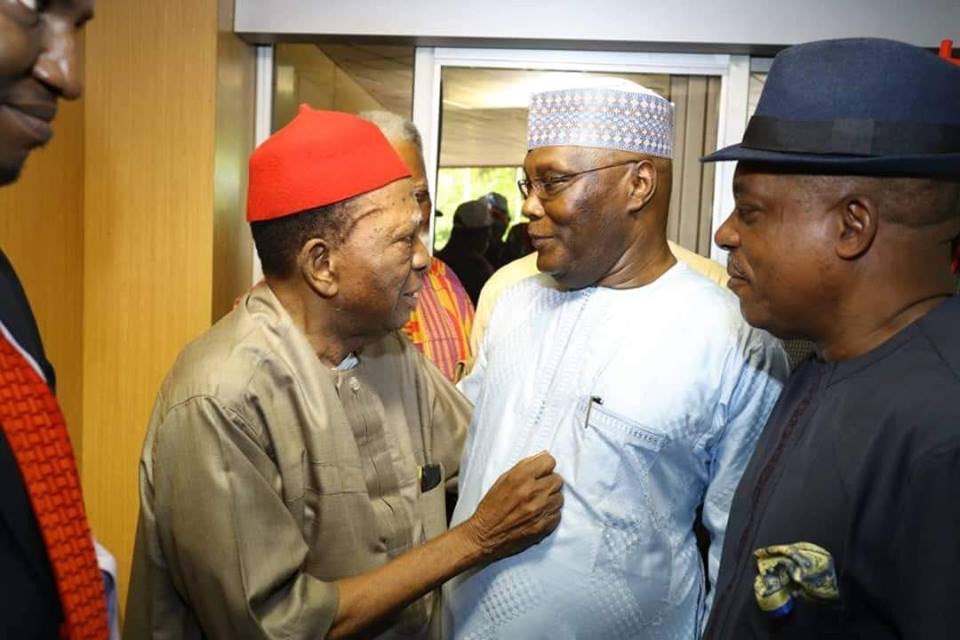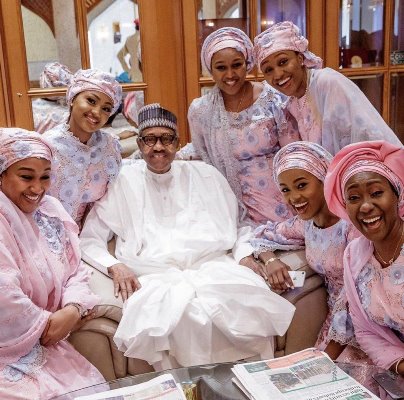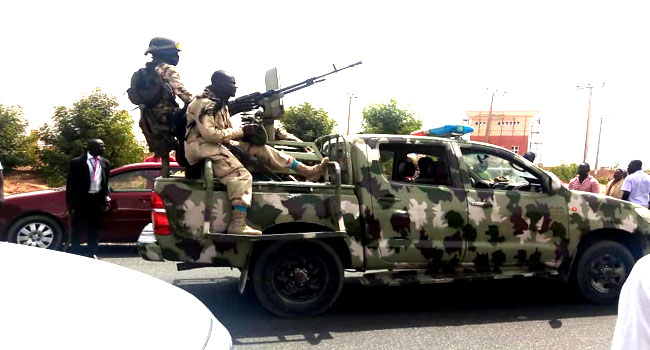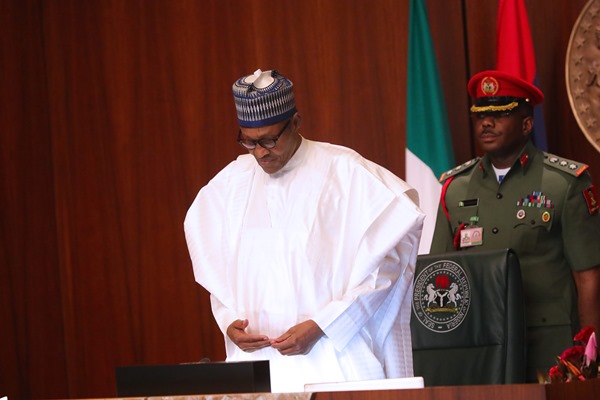

The Peoples Democratic Party (PDP) and its presidential candidate, Atiku Abubakar had filed a joint petition that challenged the president’s victory in the election.
In a unanimous judgment, Justice Mohammed Garba, Chairman of the five-man tribunal, held that the petitioners failed to discharge the burden of proof expected of them.
The judgment hinged on five issues raised by the petition which was whether Buhari was qualify to contest the election.
The petitioners also prayed that tribunal to decide whether the alleged false information by the president on his educational qualification amounted to perjury.
They further invited the tribunal to decide whether the Independent National Electoral Commission (INEC) did not transmit the results of the election electronically via its central server.
The petitioners asked the court to decide whether the respondents did not benefit from widespread rigging, over voting, violence intimidation perpetrated by their agents and security forces deployed to oversee the conduct of the election.
Lastly, the petitioners had urged the tribunal to hold that the president did not secure majority lawful votes.
Garba said the petitioners were unable to satisfactorily provide evidence to substantially prove the allegations contained in the issues canvassed.
“The tribunal is left without options to grant any of the prayers because we are not magicians to decipher exactly what to do in the circumstance other than to dismiss the petition,’’ he said.
On the alleged non-qualification of the president to contest the election, Garba said Buhari was duly screened and certified to contest the election by INEC as he met the requirement and guidelines set by the electoral body.
On the allegation of false information on his education qualification, the chairman of the panel held that evidence placed before the court showed that Buhari obtained Secondary School Certificate.
The judge also held that the president enlisted in the country military and steadily rose to the rank of Major General.
He said the Constitution and the Electoral Act 2010 had also placed powers on the electoral body to decide alternative qualification for those aspiring to contest elective positions in the country.
On whether or not the results of the general election were transmitted electronically to INEC’s central server, Garba said no existing law had approved the use of such technology in the country electoral process, adding that the laws only mandated the manual collation of election results.
Deciding on the allegation of widespread malpractices and violence disruption of the election, Garba held that the petitioners failed to bring specific evidence to substantiate those claims.
He said negligible numbers of the 62 witnesses called by the petitioners highlighted issues that bordered on electoral fraud.
Garba said allegations of electoral made by the petitioners were criminal in nature and therefore required to be proved beyond reasonable doubts.
The judge also held that neither the president nor the All Progressive Congress (APC) could be held to account for the alleged ballot box snatches and other cases of violence allegedly carried out by individuals.
“The respondents cannot be held culpable for the alleged overzealousness of some security forces accused to have unleashed terror on voters and supporters of the petitioners during the election.
“There is no such thing as transferring the transgression of an alleged thug or security agents to the respondents who had no direct involvement with whatever crime alleged about.
“Also, it is expected that the petitioners should have brought witnesses who were at the spot in all of the polling unit where these alleged malpractices and violence were committed.
“In the circumstance, the petition lacks depth as the petitioners were unable to discharge the burden of proof on all the issues before us.
“The petition is therefore dismissed for lack of competence. All parties to bear their costs,’’ Garba said.
The tribunal earlier disposed of seven interlocutory applications bordering on some contending issues raised by the parties.
Giving ruling on a motion filed by the president challenging Abubakar’s citizenship, Garba held that Buhari ought to have approached the court with a cross appeal on the matter.
He therefore, dismissed the motion for lacking in merit.
Buhari was declared the winner of the election after scoring 15,191,847 votes as against Atiku’s 11, 262,978 votes.
Chief Wole Olanipekun, SAN, Counsel for Buhari, described the petition as a sham as it lacked substance and merit.
“I have handled a few electoral petition cases, this is one petition that yarns for help, for assistance and for evidence but could not get any.
“Apart from the hype the matter has generated, there is nothing in law to support the allegations before the tribunal, Olanipekun said.
On the qualification of the president, Olanipekun said Section 131 (b) had settled that matter.
“I make bold to say that the Constitution and case laws had not compelled the candidates of the election to tendered certificates or attached same to INEC form before submission.
“The laws only mandate any person contesting election in the country to have gone to school up to Secondary School level,’’ he said.
On the issue of election results transmission by electronic means, the counsel said the use of such technology must be provided for in the Electoral Act.
“The allegation on the management of server by INEC is vague. Where is the server? This is a million dollar question that the petitioners could not substantiate.
“My Lords, this petition was not properly diagnosed, the action was ill-advised, I therefore urge the tribunal not to bow to sentiment or public opinion that does not represent the law.
“This petition is liable to be dismissed with a considerable cost’’, Olanipekun said.
On his part, Mr Lateef Fagbemi, SAN, Counsel for All Progressive Congress (APC) said he could not help but take the liberty to align himself with the submissions made Olanipekun.
“My Lords it is disheartening to see that this petition still remains watery at this stage.
“The petition made allegations they could not proof. We have done a table showing how the petitioners have proven the case so far.
“The election took place in 119,976 Polling Units, 8,901 Wards in 774 Local Government Areas across the country.
“It is sad therefore to see that the petitioners only called 62 witnesses. Out of this figure, only five witnesses gave direct evidence of what happened in polling units on the day of election.
“I feel sad that this matter has been starved of evidence and therefore deserves to be dismissed,’’ Fagbemi said.
Also, Mr Yunus Usman, SAN, Counsel for the Independent National Electoral Commission (INEC) urged the panel to uphold all of its objections raised against the admissibility of all pieces of documentary and oral evidence led by the petitioners.
Usman submitted that the electoral body conducted the Feb.23 presidential election in total compliance with provisions of the Electoral Act 2010 (as amended).
He also urged the panel to disregard the petitioners’ claims that the results of the election were transmitted electronically to a central server managed by INEC, adding that it was the “greatest lie of the century’’.
He submitted that it was laughable when the petitioners made pleadings that suggested that only the PDP and APC and their candidates contested the election.
Usman prayed the tribunal to take judicial notice of the fact that the Electoral Act 2010 prohibited the transmission of election results electronically.
According to him, the law only provides for manual transmission of election results.
Usman said that all the witnesses presented by the petitioners admitted to the fact that transmission of election results electronically had no placed in the country’s statute books at the moment.
In countering allegations that INEC abandoned its pleadings by not presenting witnesses, the counsel said the commission simply extracted salient pieces of evidence from the petitioners’ pleadings to solidify its defence.
“It would have amounted to wasting the time of the tribunal for us to call witnesses when the petitioners could not discharge the burden of proof on allegations they had made,’’ he said.
Usman thereafter prayed the court to dismiss the petition for lack of merit.
Meanwhile, Dr Livy Uzoukwu, SAN, Counsel for the petitioners urged the tribunal to discountenance the addresses of the respondents, adding that the petitioners had indeed discharged the burden of proof.
He said the tribunal must exercise its powers in good conscience to uphold the petition and return Abubakar as president.
Uzoukwu further said the second respondent (Buhari) was unable to present his Secondary School Certificate before the tribunal in order to rest the allegation.
“My Lords, we pray the panel to judiciously and judicially evaluate our evidence in context of whether we have justified our allegation against Buhari’s certificate or not.
On the issue of server, Uzoukwu said INEC had operated, activated and stored the Feb.23 election results in a centrally controlled server.














